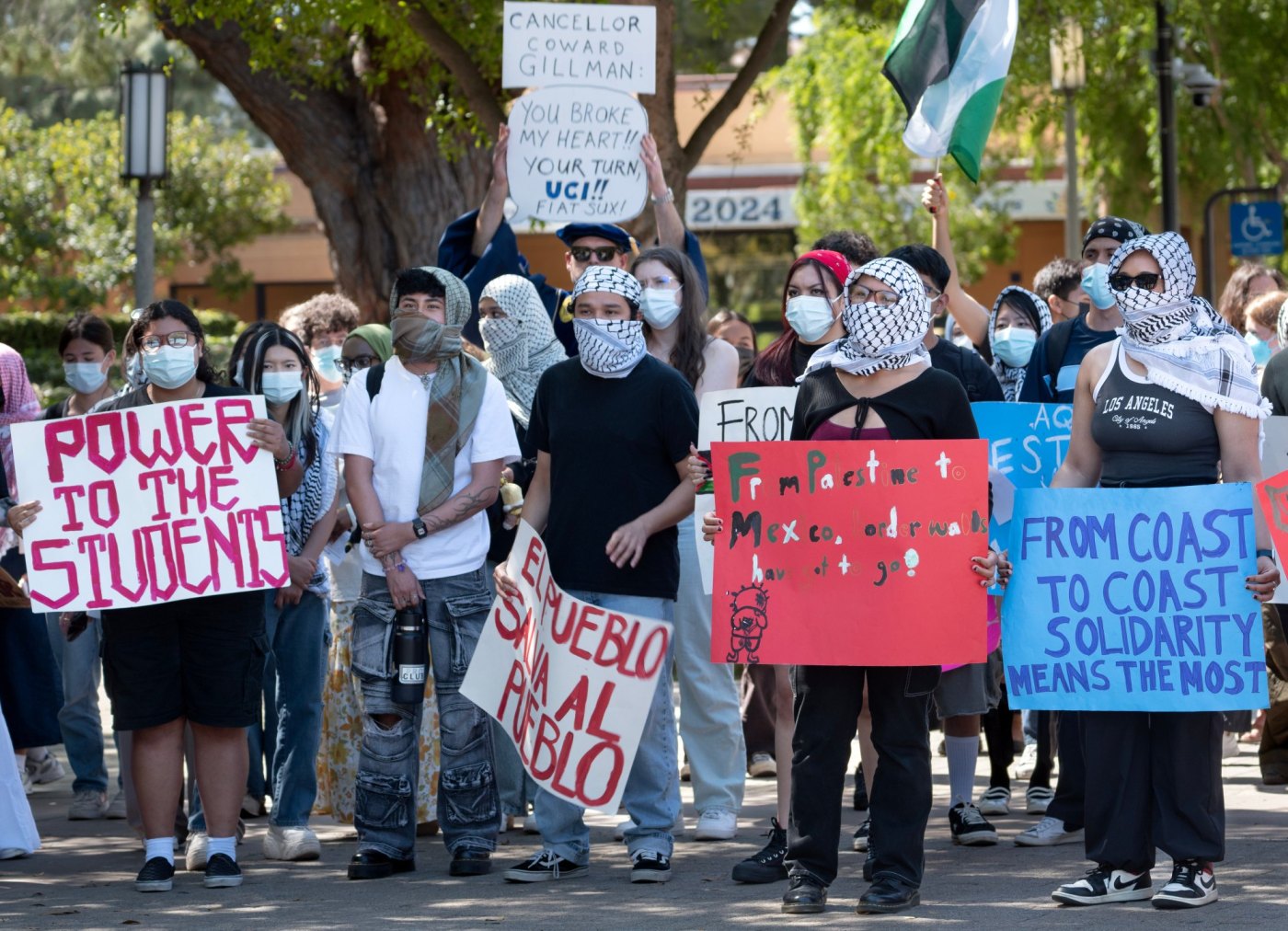The University of California system has seen about 50 students have their visa revoked by the federal government, UC President Michael Drake said Tuesday, as the Trump administration recently began increasing terminations across the country.
Students at the UC Irvine, UCLA and UC Riverside campuses are among those numbers, according to local school administrators, who also emphasized campus officials are not sharing information or cooperating with federal enforcement unless required by law.
“As of today, we are aware of approximately 50 students and recent graduates across several UC campuses who have been impacted,” Drake said in a statement. “The government has not coordinated with UC leaders on their decisions or provided advance notice to us, but has indicated in government databases that the terminations were due to violations of the terms of the individuals’ visa programs.”
F1 visas allow international students to study in the country and sometimes work part-time, making them now vulnerable to deportation.
Drake said the system isn’t aware of any federal law enforcement activity on its 10 campuses.
UC Riverside Chancellor Kim Wilcox in a message to the campus Monday, April 7, said six student visas have been terminated by the federal government — affecting two current students and four recent graduates.
“We have not received detailed reasons for these terminations,” Wilcox said. “This is not a situation unique to UCR and is occurring at higher education institutions throughout the United States and at other UC campuses.”
Wilcox said UCR’s International Students and Scholars team is working with those impacted, and the university is collaborating with other UC campuses to determine the path forward.
“UCR remains committed to international students and will continue to support them in every way possible, consistent with the law,” he said. “This includes protecting their privacy.”
UC Irvine Chancellor Howard Gillman in a Monday message to his campus said the school had also seen some in its community have their visas terminated.
“(The) campus has learned that a small number of current students and recent graduates on Optional Practical Training (OPT) have been affected,” Gillman said. “The notices indicate that the individuals’ participation in the visa programs ended due to violations of the program’s terms. While the numbers are fluid, none of these cases are connected to campus disciplinary processes.”
Mike Uhlenkamp, assistant vice chancellor, communications and media relations, said UC Irvine does not have a number of affected students to share, but added there is no immigration law enforcement activity on campus that administrators are aware of.
UCI Students for Justice in Palestine held a rally on campus Tuesday in response to the visas being revoked and “lack of UCI admin response.” They were reporting that at least five UC Irvine students have been affected.
Masih Noorzai, a junior studying environmental sciences at UCI speaking on behalf of the Students for Justice in Palestine chapter, called the visa terminations by the Trump administration a “direct attack” on students.
“Regardless of the reasons, they’ve gotten their visas revoked, they are instilling fear to demobilize activists,” Noorzai said. “It is touching every institution of education across the nation.”
The group last year organized a tent encampment on the UCI campus that lasted multiple weeks before it was broken up during a large protest that resulted in more than 40 arrests. The students called for the university to divest itself from companies with ties to Israel and weapon manufacturers, among other demands.
President Donald Trump issued an executive order in January that threatened to revoke the visas of students who participated in pro-Palestinian protests last spring amid the ongoing war between Israel and Hamas.
Secretary of State Marco Rubio said on March 27 that the government had revoked the visas of 300 international students studying in the United States.
Noorzai said students first began learning late last week about their terminated visas. He criticized UCI’s chancellor for taking days to inform the community of resources available to help and putting out “quite a neutral statement toward the situation.”
John Warren, director of news and content, said UC Riverside, like many others, was not given any advance notice of the terminations in an emailed statement. Warren also said UCR has not received any formal explanation or communication from federal agencies regarding the actions.
Gillman said immigration-related information is not shared without an individual’s consent “unless required by a lawful subpoena, court order, or judicial warrant.” Wilcox also added that UC Riverside does not share confidential student information, including immigration status, “unless required by law.”
Wilcox said UCR police officers “will not contact, detain, question, or arrest an individual solely on the basis of suspected undocumented immigration status or to discover their immigration status,” and will not partner with federal immigration authorities to enforce immigration law.
“We know this situation may be distressing for many members of our community,” Wilcox said.
UCLA Chancellor Julio Frenk said in a campus-wide message on Sunday that the visa revocations have affected six current students and six former students participating in a training program, adding, “These numbers are fluid and may change.”
Frenk said he is meeting almost daily with Drake and other chancellors in the system to prepare and respond to federal policy changes enacted by the Trump administration.
“We recognize that these actions can bring feelings of tremendous uncertainty and anxiety to our community,” Frenk said. “We want our immigrant and international UCLA students, staff and faculty to know we support your ability to work, learn, teach and thrive here.”
City News Service contributed to this report.





